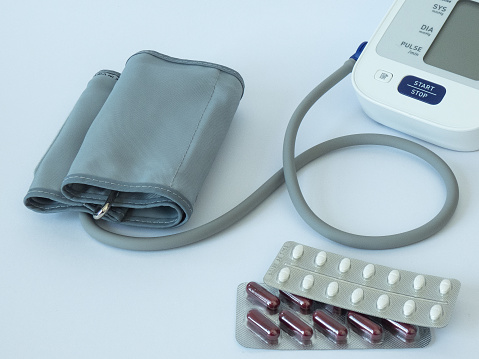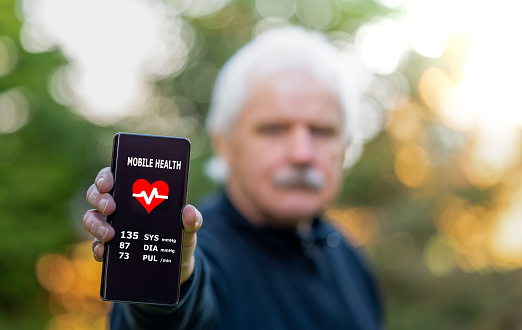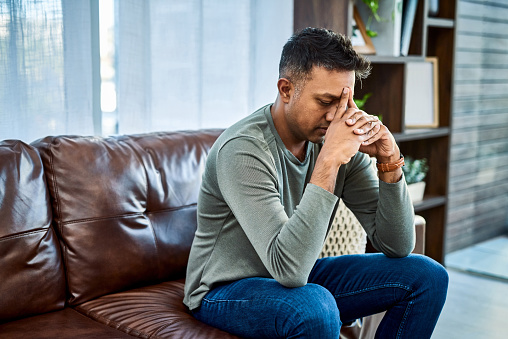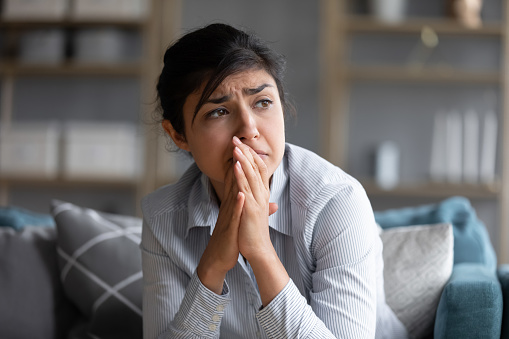
When you have a chronic condition like anxiety, it can be difficult to know what works and what doesn’t. You want to take actions that will help you feel better, but you also want to avoid anything that might make your anxiety worse. Fortunately, some drugs and supplements can help. Bystolic for anxiety is one of these.
It’s a prescription medicine classified as a beta-blocker for anxiety that can help patients with generalized anxiety disorder (GAD) and other anxiety disorders. It works by helping people feel less anxious. Bystolic has been approved by the Food and Drug Administration (FDA) to treat GAD and other anxiety disorders.
Let’s take a look at how Bystolic works, as well as any potential side effects and risks. Bystolic can cause Headache, dizziness, lightheadedness, tiredness, nausea, slow heartbeat, or trouble sleeping. These symptoms are supposed to be temporary and not get worse. If they become worse or they last for very long please consult your doctor or pharmacist immediately.
Since one of the side effects is dizziness and lightheadedness, you can reduce their effects by rising up slowly if you were sitting or lying down.
Contents
How Does Bystolic Make You Feel?
Bystolic can cause Headache, dizziness, lightheadedness, tiredness, nausea, slow heartbeat, or trouble sleeping. These side effects can occur in the first few weeks of taking the medication as your body gets used to the medication. However, after the body gets used to the body, you should get anxiety relief.
Bystolic like other anxiety medication has side effects. However, these side effects in most drugs subside after the body, particularly the brain gets used to the medication- thus Bystolic side effects do go away after the body tolerates the medication.
If any of these effects last or get worse, tell your doctor or pharmacist promptly. To reduce the risk of dizziness and lightheadedness, get up slowly when rising from a sitting or lying position.
How Does Bystolic Compare to Other Drugs for Anxiety?
Propranolol and atenolol are two beta-blockers that doctors often prescribe for anxiety. They offer relief for anxiety and also for high blood pressure. Therefore, they are good for people with heart conditions however, Bystolic has less side effects as compared to the other beta-blockers for people with heart conditions.
Nortriptyline is an antidepressant that can be used as a sleep aid and is FDA-approved to treat GAD. It works by changing the levels of chemicals in the brain like serotonin, norepinephrine, and dopamine.
Atenolol is a good choice for anxiety for people with heart conditions and it’s less likely to cause dizziness or lightheadedness than other beta-blockers and has been reported to have fewer side effects than propranolol.
Lorazepam (Ativan) is an anti-anxiety drug that can also be used as a sleep aid. Lorazepam works by altering the flow of chemicals in the brain like GABA and serotonin which are neurotransmitters that play a role in how you feel.
Side Effects of Bystolic

Bystolic is a drug used to treat GAD and other anxiety disorders. It’s also approved for other anxiety disorders. Bystolic can cause side effects, so it’s important to know what they are before you take the medication.
Some common side effects of Bystolic may include headache, dizziness, lightheadedness, tiredness, nausea, slow heartbeat, or trouble sleeping. They are majorly short-term or not severe symptoms.
If the side effects become severe or last for long, you need to consult your doctor immediately. This is because different medications have different effects on different people.
Moreover, to ensure you don’t get effects of dizziness and lightheadedness, you need to ensure that you do not rise abruptly if you were sitting down or lying. Moreover, operating machinery and driving should be done with utmost care.
Does Bystolic Work for Anxiety?
Bystolic is a prescription drug that can help treat generalized anxiety disorder (GAD) and other anxiety disorders. It works by preventing adrenaline from being released as quickly and in high doses. You may not be aware of it, but your body releases adrenaline in many different situations.
The release of this stress hormone can cause you to feel anxious, nervous, and uneasy.
Bystolic is a beta-blocker which makes it so that the body doesn’t release enough adrenaline when you are feeling stressed out or anxious. When this happens, people often feel calmer and less jittery or jumpy than they were before taking the medication. It also reduces physical symptoms of anxiety such as tingling sensations, tightness in the chest/heart rate, or shortness of breath.
Your doctor will prescribe one dose per day to start with, but they might adjust your dosage based on how you respond to it (you might need more or less)
From a patient, “I can’t give you a definitive answer without knowing more about your medical history. As someone who has taken Bystolic for anxiety and panic disorder, I can tell you that it does make me feel calmer overall and does seem to lower my anxiety level. It’s not a magic bullet that will make everything in your life perfect and anxiety-free, but it could be helpful for some people. It’s worth discussing with your doctor or pharmacist!”
How does Bystolic work for anxiety?
Bystolic is a beta-blocker, meaning it works by lowering the activity of adrenaline. For some people, this can help reduce anxiety. But that’s not always the case. Some people may experience side effects from Bystolic that make their anxiety worse.
Of course, if you have any doubts about whether or not Bystolic is right for you, talk to your doctor before you start taking it. They’ll be able to help you decide. Other medications might work better and won’t cause side effects. In theory, beta-blockers may help reduce anxiety because they lower adrenaline levels in the body.
However, this doesn’t always happen for everyone who takes them, and they can’t cure anxiety altogether. If you’re concerned about your anxiety and want to see if Bystolic might be a good option for you, talk to your doctor first before making any changes to your medication regimen without their input.
Beta-blockers are often used to treat heart conditions, but they can also be used to help with anxiety. In theory, beta-blockers may help reduce anxiety because they block the adrenaline that triggers an anxious response.
However, beta-blockers don’t reduce anxiety for everyone and they can’t cure it altogether. Even though beta-blockers might not be the perfect solution for treating your anxiety, it’s worth giving them a try if you have GAD or another type of anxiety disorder.
What is the best beta-blocker for anxiety?

The best beta-blocker for anxiety is propranolol. Propranolol has been the beta-blocker that has been most studied for anxiety. It first became popular as a treatment for severe angina (chest pain).
After it was shown to be effective in reducing the severity of chest pain, it quickly became one of the most commonly prescribed medications for generalized anxiety disorder. Beta-blockers work by blocking the effects of adrenaline on your body. This prevents adrenaline from stimulating your nervous system and causing your heart to race, get tense, or feel anxious.
It can be taken as a pill or as an injection. Propranolol is used to treat high blood pressure and some types of tremors, but it’s also prescribed for anxiety disorders.
Can you exercise while taking Bystolic?
Yes, you can exercise while taking Bystolic. However, make sure you know the risks and talk to your doctor before making any changes to your routine. Exercise is an important part of a healthy lifestyle, so you should be careful not to avoid it because of this drug.
Some people use beta blockers like Bystolic to help them exercise more easily. This class of drugs reduces the physical arousal which might otherwise prevent you from exercising at all.
However, remember that no matter how hard you exercise when taking a beta-blocker, you may never reach your target heart rate. If this happens, stop exercising and call your doctor immediately.
Beta-blockers prevent the body from responding to its natural inclination to speed up the heart in response to physical activity. This means that even if you try to get your heart rate up by running on a treadmill for an hour, it will not reach its maximum capacity. If you are going to be exercising with these medications, it’s best to speak with your doctor first.
How long does Bystolic take to work for anxiety?
It can take up to about 4 hours for Bystolic (nebivolol) to start working. However, it will take several weeks before you can gain the full benefits of taking the beta blocker.
. Bystolic is a prescription medication that you take as needed to reduce anxiety symptoms. Some people may feel the effects of Bystolic soon after taking it, but it may take a few weeks before you notice any significant benefits.
The FDA recommends that Bystolic be taken for about 4-6 weeks before its full benefits are seen. It’s best not to stop taking Bystolic suddenly because this can cause withdrawal symptoms and other problems. To avoid unpleasant side effects, get medical help if your medication needs to be changed or stopped.
Which is better Bystolic or metoprolol?
Bystolic causes fewer adverse effects than metoprolol, although it is more expensive. Bystolic vs metoprolol. Metoprolol is a beta-blocker that reduces the activity of the heart and blood vessels.
Bystolic is a beta-blocker as well, but it causes less side effects than metoprolol. These two drugs are also similar in that they can both be used to treat high blood pressure (hypertension) and chest pain (angina).
However, Bystolic could be a better option for you if you want to avoid side effects like fatigue, weakness, dizziness, and an upset stomach.
Does Bystolic work immediately?
No, it does not work immediately for anxiety but takes approximately 4 hours for the short effects to be felt. Many people worry that if they take medication, the relief will come immediately.
Unfortunately, that’s not always the case with Bystolic. It can take up to about 4 hours for Bystolic to start working, and several weeks before you get the full benefits.
This is partly because of how anxiety works in the body. Anxiety has a lot to do with chemicals called neurotransmitters. When these aren’t balanced properly, it can lead to an increase in anxiety symptoms.
What is the peak time for Bystolic?
Bystolic is a medicine that can treat generalized anxiety disorder or GAD. Bystolic can also be prescribed to help with other types of anxiety disorders such as social phobia (a fear of being judged by others) and panic attacks.
Peak plasma concentrations time for Bystolic 15-mg has been seen to be 0.5 to 2 hours for people with excellent metabolism and 3 to 6 hours for people with poor metabolism of the drug. A 10-mg dose reaches peak plasma concentrations in 1 to 3 hours, but the peak time is unpredictable.
It’s important to be clear on what type of anxiety you have before taking this medication, as it may not work for all types. Bystolic is taken 1-2 times a day and should be taken with food or right before a meal to avoid an upset stomach. You should not take more than 60 milligrams per day without talking to your doctor first.
How long does Bystolic stay in your system?

Bystolic is a prescription medicine that works by helping people with generalized anxiety disorder (GAD) feel less anxious. Bystolic has been approved by the FDA to treat GAD and other anxiety disorders.
It has a half-life of 12 to 19 hours, which means effects can last up to 48 hours after a dose. This means once you stop taking the medication, you will at least experience some effect for up to 48 hours.
After stopping taking the medication, you can experience withdrawal symptoms including chest pain, heart attack, or abnormal heartbeats. Withdrawal symptoms can be experienced for up to 6 days from the date of the withdrawal. The length of the withdrawal period depends on the dose that you were taking as you were starting the withdrawal.
Is it better to take Bystolic in the morning or at night?
Bystolic comes in tablets, so you can take it at any time of the day. However, many people prefer to take it at night to prevent side effects and control blood pressure.
The best time to take Bystolic is at night because it is the ideal time to control blood pressure when it begins to rise. Moreover, it will help to ensure you have controlled blood pressure and anxiety during the day.
If you choose to take it at night, make sure not to drive or operate machinery right after taking this medicine. You should avoid drinking alcohol while taking this medicine and for a few hours after taking it.
Does Bystolic affect sleep?
People who take beta-blockers can have less melatonin than needed, therefore making it difficult to sleep. This is because beta-blockers decrease the amount of melatonin your brain produces. If you’re experiencing sleep problems as a result of taking Bystolic, talk to your doctor about other options.
The effects of Bystolic on sleep may be for a limited time because of having less melatonin than needed. However, for some people, the effects may last longer than normal.
You should see a doctor if the effects are experienced for longer than normal. This is especially if it is leaving you drowsy during the day and affecting your ability to study or work.
What is a good alternative to Bystolic for anxiety?
Bystolic is a viable treatment option in the short term, but alternatives are Propranolol, SSRIs, Buspirone, and Benzodiazepines. The best alternative to Bystolic is a more general anxiety medication, such as Propranolol, SSRIs, Buspirone, or Benzodiazepines.
These drugs are specifically used to treat generalized anxiety disorder (GAD) and other anxiety disorders.
For example, Propranolol is often used for short-term relief of symptoms. It’s an effective option because it reduces the physical symptoms of GAD without changing the person’s mental state too much. However, it can come with side effects like lightheadedness or tiredness.
Benzodiazepines are another option that people may take if they have trouble sleeping. This drug works by temporarily treating sleep problems.
There are also a few SSRIs on the market today that show promise at effectively treating GAD and anxiety disorder symptoms. SSRIs work by making neurotransmitters in your brain “work better” to increase your mood and relieve chronic worry and stress—common symptoms of GAD.
One downside is these drugs can cause side effects like nausea and weight gain.
Buspar is another treatment option for those who don’t want to take an antidepressant for their condition. Some people find this drug more helpful than other medications because it doesn’t require them to take pills every day—only when they need it (for up to six months). Buspar works by affecting serotonin levels in the brain which helps people feel less anxious and helps with their sleep patterns as well.
Is metoprolol a substitute for Bystolic?
Metoprolol and carvedilol are substitutes for Bystolic. Both drugs help with certain types of anxiety. Carvedilol is a beta-blocker and relaxes blood vessels. Metoprolol is also a beta-blocker, but it also increases the amount of oxygen in your blood.
Metoprolol can be used to treat heart and lung conditions so it’s often prescribed to patients who have anxiety in addition to those other health conditions. If you want to stop taking Bystolic for anxiety, talk to your doctor about what might work as a substitute.
Summary
Anxiety is a chronic condition that can be hard to manage and may not respond well to traditional treatment methods. Bystolic is a prescription drug for people with GAD, and it has been approved by the FDA. Bystolic is a prescription medication that can help people with generalized anxiety disorder in the form of an oral tablet. It works by reducing patients’ anxiety levels and is FDA-approved for this purpose.
It works by reducing feelings of anxiety. There are some side effects associated with the drug, but they are rare.
The drug can cause dizziness and lightheadedness, and it’s important to avoid getting up from a sitting or lying position too quickly. To reduce the risk of these effects, get out of bed slowly. If any of these side effects worsen or last for more than a few days, contact your doctor or pharmacist immediately.
FAQs on Bystolic for Anxiety
What is Bystolic?
Bystolic (nebivolol) is a prescription medicine used to treat high blood pressure and, more recently, anxiety. Bystolic is an oral medication that has been approved by the Food and Drug Administration (FDA) to treat generalized anxiety disorder as well as other anxiety disorders.
How does Bystolic work for anxiety?
Bystolic works by relaxing the blood vessels, lowering your heart rate, and making you feel less anxious. It works by helping people feel less anxious. It achieves this by blocking a chemical in your brain called norepinephrine.
Is a prescription necessary to buy Bystolic?
Yes. Bystolic can only be obtained with a doctor’s prescription
What are the possible side effects of Bystolic?
The most common side effects associated with taking this drug include headache, upset stomach, dizziness, lightheadedness, tiredness, nausea, slow heartbeat, or trouble sleeping. These Bystolic side effects do go away after the body tolerates the medication.
Image source: https://unsplash.com/